|
For those of you looking for a short, nostalgic Christmas read before the busyness of the holidays begins, I have a treat for you. Especially if you love Lynn Austin’s historical fiction, and in particular, “If I Were You” set in World War II. Her latest, a Christmas novella, is a charming continuation of Audrey and Eve’s saga, now to include their sons, who have the ‘gimmes’ after pouring over the Christmas Wish Book, reminiscent of the Sears Christmas Catalogue from years past. Well, settle in and enjoy this interview, compliments of Austin’s publisher, Tyndale. What prompted you to write a Christmas novella? I love Christmas stories, and the Christmas movies that our family watches year after year. (My favorite is “How the Grinch Stole Christmas.”) I have always wanted to write a Christmas-themed book but never had time—until the pandemic struck and all of our travel plans, family get-togethers, church events and other fun activities were cancelled, giving me plenty of extra time. My idea was to write a Christmas novella that was a mini-sequel to one of my full-length novels, giving readers an enjoyable update on some of their favorite characters. “The Wish Book Christmas” brings readers back to the people and setting they first met in my novel “If I Were You.” In “The Wish Book Christmas,” what message do you hope to convey about Christmas? Christmas is about the greatest gift of all, Jesus Christ, given to us in love by our Heavenly Father. He should be the focus of all that we do to celebrate. Christmas shouldn’t be just a spending spree with long lists of all the presents we need to buy and the gifts we hope to receive. Instead, it’s a time to return God’s love by freely giving ourselves, our time, and our talents to others, expecting nothing in return. This is the best way to glorify God and celebrate His Son’s birth at Christmas. Please tell us a bit about the setting of your novella. “The Wish Book Christmas” takes place in a small Connecticut town in December of 1951. Christmas is one month away, World War II is in the rearview mirror, and Americans are enjoying renewed prosperity along with a “baby boom.” The main characters, Eve Dawson and Audrey Barrett, are British war brides who are struggling to raise their fatherless sons in the post-war bungalow they share. Readers first met Eve and Audrey and their five-year-old sons, Robbie and Harry, in my novel “If I Were You,” but this novella also reads very well as a stand-alone story. Can you provide a brief backstory of your characters? Eve Dawson and Audrey Clarkson Barrett were childhood friends in England, where they grew up. Audrey and her wealthy family owned Wellingford Hall, a huge estate where Eve and her mother worked as servants. Their friendship flourishes in spite of their differences, and when World War II begins, the women enlist in the British Army together, driving ambulances. They each fall in love with an American soldier and give birth to a son. But Audrey marries her son’s father and Eve does not. Audrey prepares to join her husband in America but her plans end in tragedy when her husband dies suddenly. She decides to remain in England. Eve, who has no way to support her son and herself, decides to steal Audrey’s identity and move to America in her place. Eve’s deception is uncovered four years later when Audrey and her son arrive in America unannounced. Unscrambling the mess and restoring the friendship provides the plot for “If I Were You.” Your novella is set in 1951. Why do you feel the themes of this story are so relevant, both then and now? I think 1951 and 2021 are both times of great change and also prosperity. In both eras, the values and traditions of the past are being questioned and, in many cases, discarded for something new and modern. This is especially true of biblical values. As suburban life becomes busier and more secular in both time periods, the true meaning of Christmas as Christ’s birth is lost as the holiday becomes commercialized. In both 1951 and 2021, we long to recover the simple beauty and meaning of the holiday. This story is a nostalgic harkening back to the iconic Sears Wish Book catalogue. Was this catalogue part of your childhood Christmases? Please explain. Oh, yes! The Sears Wish Book was something my two sisters and I looked forward to every season. I remember the three of us poring over it together the way the two boys in my novella do, choosing among page after page of toys and dreaming of finding them all beneath the tree on Christmas morning. Like the mothers in the novella, our mother also made us limit our choices—which was often difficult to do! The catalogue would be limp and dog-eared by the time we gave Santa our final lists. When I was researching this novella, I was surprised and pleased to find back issues of the original Sears Wish Book online, dating back to the 1940’s and 50’s. It was great fun to be reminded of all the toys from my childhood. And although the prices seemed ridiculously cheap by today’s standards, parents probably found them costly at the time. If someone is standing in a bookstore considering your novella, what might you say to them to encourage them to read it? We all need a reminder now and then that Christmas isn’t about creating the perfect “Hallmark Christmas” with all the trappings and trimmings—and exhausting ourselves and our credit card limits in the process. “The Wish Book Christmas” offers inspiration for keeping the true meaning of Christmas at the forefront as we celebrate Christ’s birth. Readers with children and grandchildren will find some ideas for managing their kids’ expectations and teaching them to give. What is your hope for this novella? My hope is that “The Wish Book Christmas” will rekindle the joy of giving and inspire creativity in shaping our Christmas traditions. The beauty of Jesus’s birth can be celebrated in simplicity and should be shared with neighbors who don’t know Him. I think most children are naturally generous, and I hope the story inspires parents to teach their children new ways to give at Christmas. What lessons from this story do you hope will resonate with your readers? One of the characters in the novella, Eve Dawson, has a difficult time accepting God’s forgiveness for her past mistakes, feeling that she has to do something to earn it. I hope the message is clear that Jesus is God’s gift of grace to us so that our past can be forgiven. Like Eve, we can have a new life and a new beginning in Christ. How did writing this story change you and your own perspective of Christmas? I love to lavish presents on my children and grandchildren, but writing this story reminded me that it’s more important to teach them, by my example, how to give generously to others. I want to reach out to my neighbors in new ways this Christmas, and pare down all the expectations of what makes a “perfect” holiday. I hope you have enjoyed this peek into the creation of “The Wish Book Christmas” which will make a nice little stocking stuffer for your favorite reader. For other interviews with Lynn, click Legacy of Mercy. Speaking of readership, if you know of a middle grader who is looking for a new historical fiction, consider The Heart Changer. May the Lord bless you and fill your hearts with hope this Christmas season!
0 Comments
I am thrilled and honored to be a part of award-winning author, Lynn Austin’s Book Launch team as preparation for my own MG Biblical fiction debuting in Spring of 2019 with Ambassador International! I love historical fiction, especially when it relates to my hometown of Chicago— and includes a bit of history and mystery. Her latest in the "Legacy" series features both, along with a peek into Dutch heritage. Lynn has graciously answered a few questions so we can discover what goes into the creation of a historical novel like "Legacy of Mercy." So, without further comment, let’s go! Legacy of Mercy is a sequel to your novel Waves of Mercy. How does this new book build on that story? At the end of “Waves of Mercy,” one of the main characters, Anna Nicholson, returns to Chicago to marry her fiancé and continue her life as a wealthy, young socialite. She has discovered, over the summer, who her birth mother was, and she is naturally curious to learn more about her. She also has no idea who her birth father was and longs to solve that mystery, too. Most of all, she is eager to learn how to grow in her new Christian faith. In “Legacy of Mercy,” she explores all of these questions, which creates a host of new problems in her life. The other main character from “Waves of Mercy”, Geesje DeJonge, is contented with her walk with God and her life in Holland, Michigan after enduring many trials as an immigrant from the Netherlands. At age 67, she isn’t seeking a new adventure. But when she offers to help Cornelia, a young Dutch immigrant, she’ll discover that she still has many things to learn about God and about herself. Don’t we all. Tell us about Anna Nicholson - what made you want to return to her story? After “Waves of Mercy” was published, I started receiving letters from readers who all wanted to know what happens next in Anna’s life. She is only 23 years old, and a brand-new Christian, so there had to be a lot more to tell about her—or so my readers insisted. They were also concerned about Derk VanderVeen—would he ever find true love? The more I thought about it, the more curious I was to discover the answers, too. I loved all of the characters from “Waves of Mercy” so it was a pleasure to bring them back to life and find out what happens next. Wow. What a thought that we as readers can have an impact on what you write! Anna's grandmother is helping Dutch immigrants adjust to America. So, what inspired you to explore the story of Dutch immigration to America? I live in Holland, Michigan, a town that was settled by Dutch immigrants in 1847. When my husband and I moved here four years ago, I was curious to learn more about the town’s past. It has been a haven for Dutch immigrants leaving the Netherlands for a variety of reasons, including religious persecution, famine, and the poverty and hardship following World War II. The more I read about their courage, perseverance, and faith, the more I knew I wanted to tell their stories. Being a historical fiction author myself, I want to know what inspired you to write about characters in this period and place? I lived in the Chicago area for more than twenty years and I find its history fascinating. In a way, it’s a new city—almost completely rebuilt after the Great Fire of 1871. It doesn’t have the long history of places like New York City or New Orleans, and any newcomer can start with nothing and become a millionaire in Chicago. I also love the “Gilded Age” when houses were ostentatious, and women wore elegant gowns, and the wealthy had scores of servants. It looks so wonderful from the outside, but women of that era faced so many limitations. I’ve always wondered if I would really enjoy all of that wealth and elegance if my only role in life was to be a pretty ornament on my husband’s arm. That’s what fascinates me most about this era—how does a woman find a sense of purpose in a frivolous age? Oooh. Good question! Now, when setting out to write a novel, which comes to you first - the time, the place, or the characters? I usually begin my novels with a certain time period or historical event in mind. As I delve into the research (including travel to the book’s setting, whenever possible) I figure out the setting for the novel. In the process, I find that my characters start forming in my mind, and I flesh them out by creating resumes for them with all sorts of background information. When the characters begin to “speak” to me and I hear their “voices,” I know I’m ready to start writing. At this point, I don’t have a clear outline of the plot in mind. I simply begin writing and see what happens next. What kind of research did you do to get the details in Legacy of Mercy right? I spent a lot of time reading about manners and customs among the wealthy during the Gilded Age, when the story takes place. Society demanded strict adherence to rituals, such as afternoon teas and calling cards. I had explored these details in earlier novels, such as “A Proper Pursuit,” and more recently in “Where We Belong,” so it was fun for me to revisit them. Mind you, I would have gone bonkers if I had to live with so many restrictions—especially the rules that say a married woman must turn over all of the decision-making to her husband. When writing historical fiction, what are the challenges (or joys) of balancing historical facts with filling in the blanks with your imagination? One of the joys of writing historical fiction is that as I research past history, I get scores of great ideas for plots and stories! I once read a true account of how women dressed up like men and fought in the Civil War—and it led me to write the novel “Fire by Night.” The true story of the Packhorse Librarians during the Great Depression led to my novel “Wonderland Creek.” In all of those instances, the historical facts fed my imagination. The challenge comes, when I have to fit my plot ideas into a historical framework. Sometimes I wish I could change the facts and the dates to fit my story! And often, by the time I finish a novel, I have trouble remembering which ideas were true facts and which ones I made up. There you go— fact is sometimes stranger than fiction! Lynn, what do you hope readers takeaway after reading Legacy of Mercy? One of the themes is about gossip, and how lives can be destroyed by the power of our unbridled tongues. Another is the difficult struggle that young people often face when they seek to stay true to their faith and to who God created them to be. I think there’s also a message for the older generation—that God doesn’t believe in retirement! I would be thrilled if readers found themselves pondering these themes after finishing “Legacy of Mercy,” but my primary goal is always to simply tell a good story. Those are powerful lessons to learn. And I’m not planning to retire either! So here’s the most important question: Does your faith impact how you approach writing stories? Every author writes from his or her own worldview, whether they are a Christian, an atheist or some other religion. Our worldview is the way we make sense of life and put all of the puzzle pieces together to answer life’s questions. I don’t have a spiritual theme in mind when I begin a story—I simply want to tell a tale about people in a certain time and place, facing a difficult dilemma. It’s not my goal to preach the Gospel message in every book I write. But because I’m a Christian, my worldview seeps through the pages of my book as the characters wrestle with the big questions in life. And it’s natural for them to find the answers to those questions from my own Christian worldview. That's so true, Lynn. Lastly, what are your favorite ways for readers to support their favorite authors? I think it’s wonderful when readers are so excited about an author that they want to share her books with all of their friends. Word-of-mouth is still the number one way that books are sold. Book clubs are very popular, and I love it when a reader tells me that no one in her club had read one of my books until she suggested it for their monthly selection—and then all of those new readers told their family and friends about it! It’s so helpful when readers post blogs about an author’s books and post reviews on Goodreads and Amazon, but when they share their copy of a book until it falls apart, that’s the best advertising ever! Absolutely! That's the main reason I am involved in your book launch, Lynn. I love your writing and your worldview. My favorites are "Where We Belong" and "A Proper Pursuit." It's encouraging to know what I read will strengthen my faith. I trust when my MG Biblical fiction debuts in Spring of 2019, I will also inspire others, and have a faithful team to help pass the word! If anyone is interested to follow my journey to publication, please sign up for my email list at the top of the page. It would be an honor! |
Good News!My MG Biblical fiction "The Heart Changer" debuted in 2019 with Ambassador International. Categories
All
|



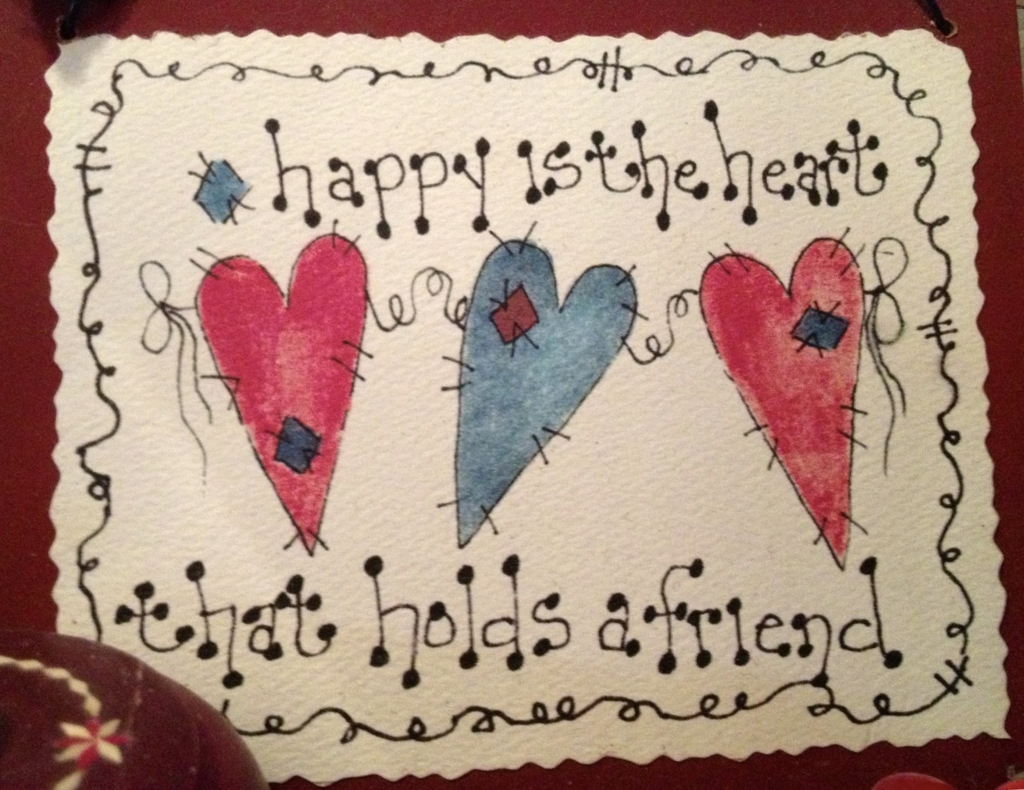
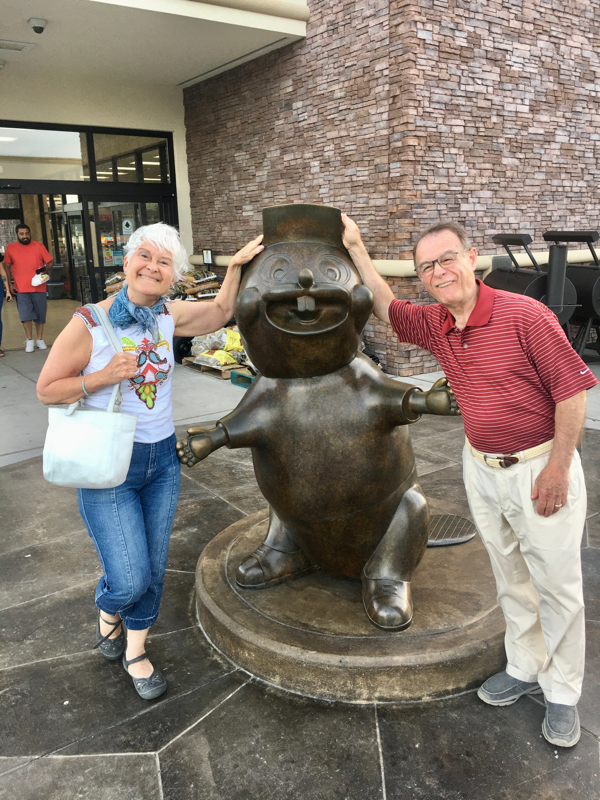
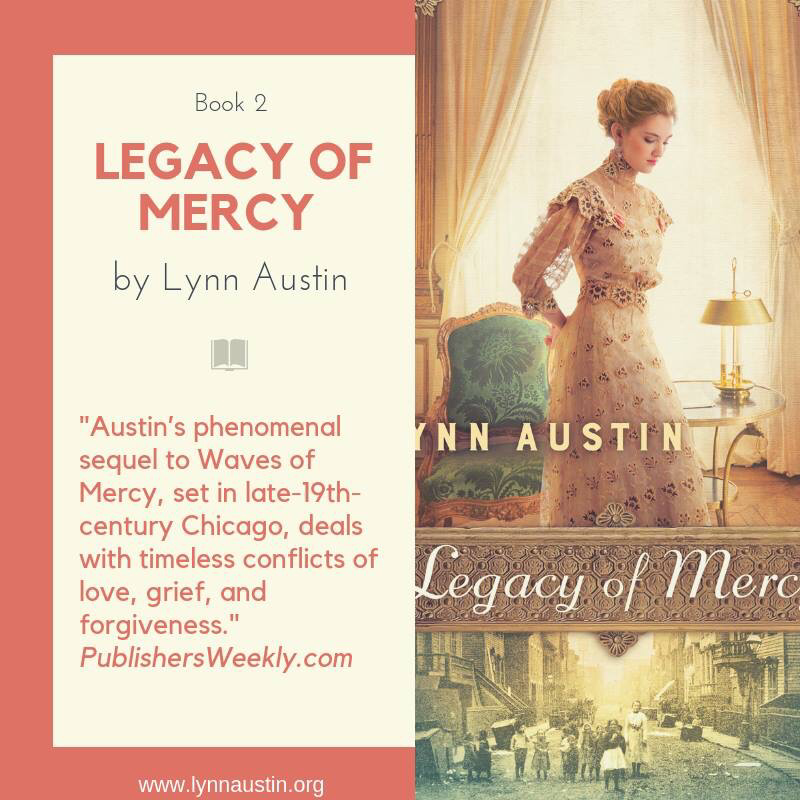
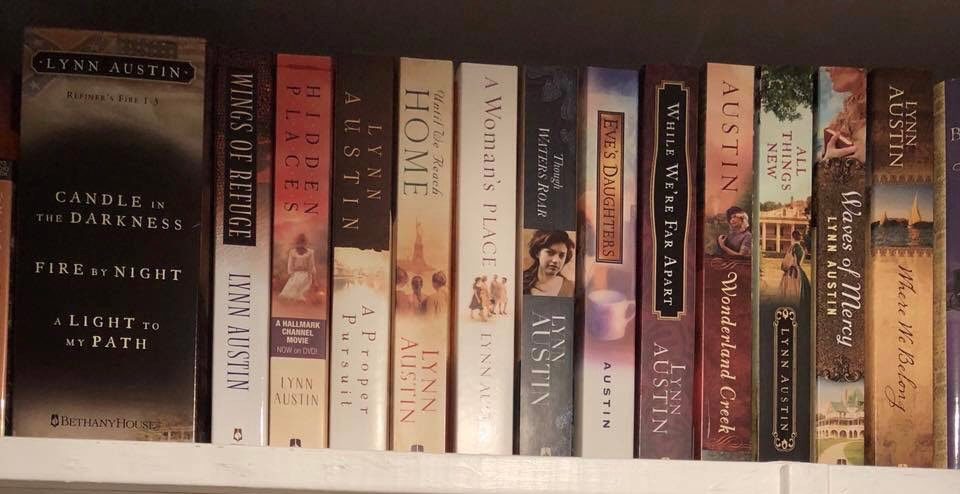
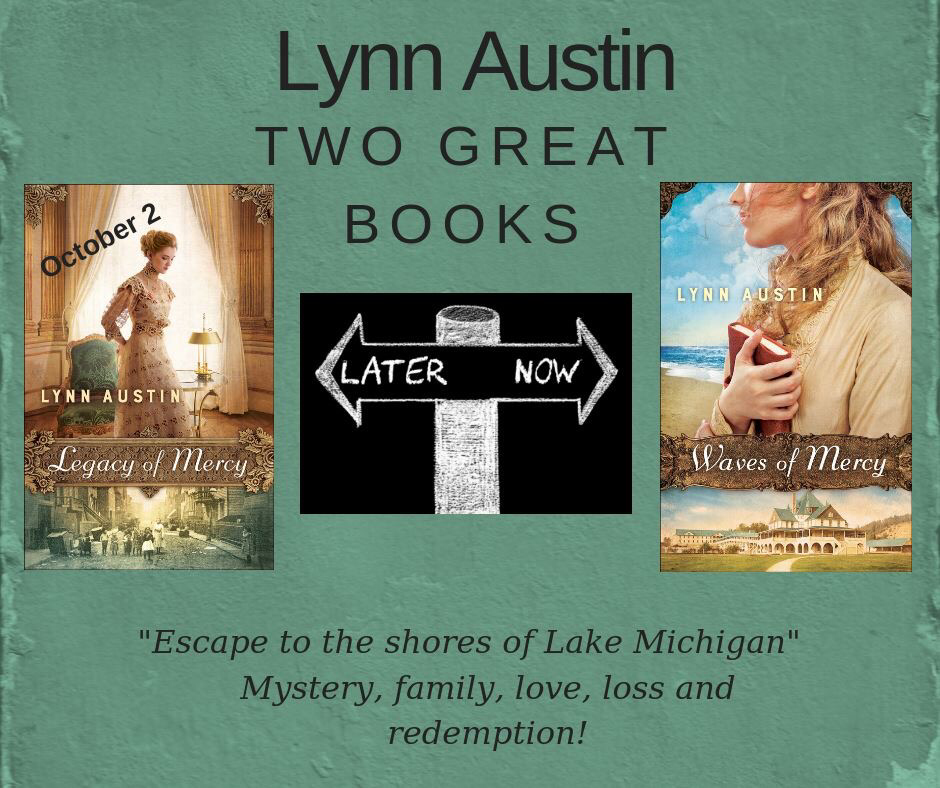
 RSS Feed
RSS Feed